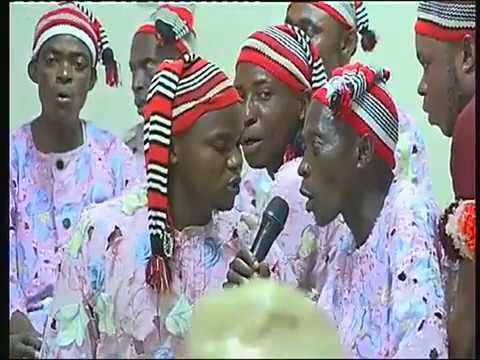Origin and History of Anang People - Onyeji Nnaji
The Anaang were formerly located in the former Abakand Ikot Ekpene Divisions of the Anaang Province, as well as part of the former Opobo Division of UyoProvince, in the former Eastern Region of Nigeria. The proper name for the Ika of Akwa Ibom is Ika-Annang. Based on 2018 estimates, there are about 4 million Annang speakers in Akwa Ibom.
The Anaang (also spelled Annang) are a Southern Nigerian ethnic group whose land is primarily within 8 of the present 31 local government areas in Akwa Ibom State: Abak, Essien Udim, Etim Ekpo, Ika, Ikot Ekpene, Obot Akara, Oruk Anam, Ukanafun in Akwa Ibom State. Ugwunagbo, Obi Ngwa,and Ukwa West of Abia State are other people believed to be part of the Anang's history.
Origin of the Anang Prople
Clear observation made in the course of my stay in Akwa-Ibom is an inherited hatred for Igbo. They claim that Igbo are dominating; the same claim by other tribes. But Akwa-Ibom case is naturally historical. When I tried to investigate it, one of my respondents snappily said, "Don't you know that Igbo people drove us out of our home". He said this reluctantly because I asked him to stand barefooted and tell me the truth that they were not Igbo in the begining. As a result of the Aro/Ibibio war, every Igbo man becomes a suspect in the eyes of the Ibibio or Anag people.
This goes the far to explain why they try to dodge the truth about their Igbo origin. The Ikwerre people share in this repudiation. That is why an Ekwerre man will bear Igbo name, speak Igbo and still insist that he originated from Benin. The name of his progenitor, Akalaka, notwithstanding. We find the same in Pulse.ng where the claim made by Godswill Obot Akpaboio that Anang originated from Ghana was replated. The question yet unanswered becomes, who is older, the Anang or the Ghanaians? The information at Pulse.ng reads:
it is said by some Anaangs that they have their origins in Jewish tribes from Egypt and settled in Ghana before arriving in the coastal Southeastern Nigeria and Southwestern Cameroon.
The Anangs are the original owners of the present Ariara, Aba international market in Abaia State. They were the sister of Ngwa people, chased out of their home following a lasting war between.The Anangs left in pains and settled disparagingly in accodance with the suggestions of their family heads at the time of departure. The names given to different Anang settlement were deriven from the scenario that led them into settling. Others, like the Afaghas, bear the names of their family lines through which their identity is retained at present. It was to commemorate this same view of place of origin that one of the Anang towns is named "Abak".
One unique religious observance that disputes every claimed of any Anang about the truth of his Igbo origin is the ritual that used to precede masquerade festivals in every Anang settlement. The festival is marked with the infesting of the inheritors’ markets to mark the end of the festival. This was invented to ward off several misconceptions resulting from the zest to fulfill certain ritualistic obligations in another man’s land.
Originally, before such festivals took place in the ancient times when the Anangs were a handful population, men were sent to Aba Ngwa (presently the abode of the prestigious Ariaria market in Aba). There the envoys of the Anang communities would perform rituals of remembrance of place of origin, then the envoys would return before the festival commenced. As people continue to multiply and intentions continued to change from good to evil, the venue of this ritual was changed to each community’s market. In Abak, the festival is called Nnabo.
Nnabo is a festival of bloodshed celebrated on the last market day of the Abak people. Other Anang settlements have their similar blood seeking festivals celebrated at different times of the year. All the festivals take similar shape and remarkable with the intrusion of the artistes to the market of each inheritors’ community where they perform certain rituals to mark the end of the blood feast. Women are usually forbidden from showing up at the mystic point of nabo, while other communities of the Anang sect forbid the appearance of women at major streets, markets and observable distance on the last day. The penalty for disobeying this order by any woman is death.








.jpeg)
Comments
Post a Comment